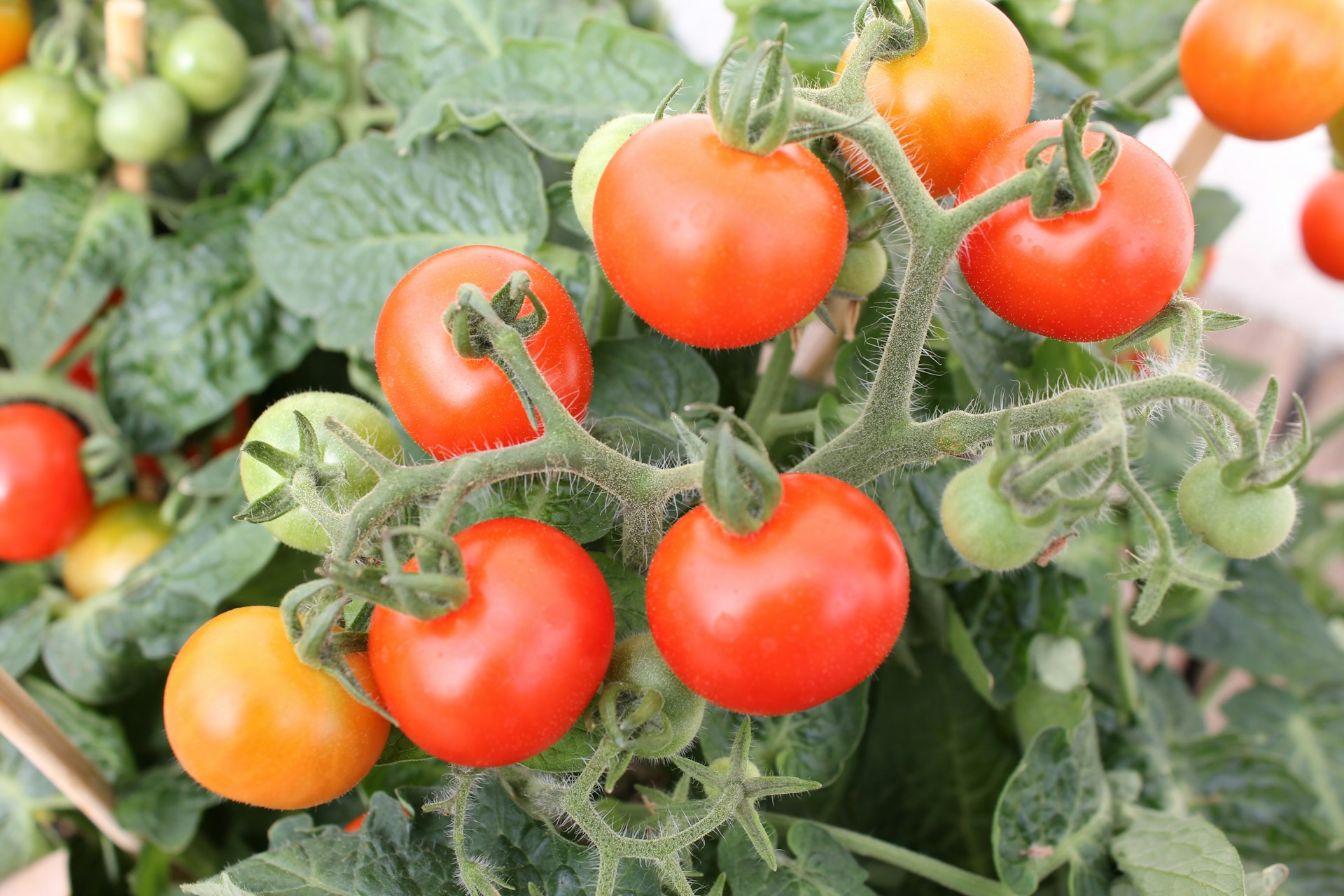Efficient networking stands at the forefront of successful business endeavours, particularly within the sectors where ongoing interaction with multiple stakeholders is inherently ingrained.
Produce distribution is one such sector that thrives on the ability to establish and maintain healthy, productive relationships.
With the rapid changes brought on by technology and globalisation, mastering the necessary networking skills has become even more crucial than before.
This article will shed light on these imperative skills, aiming to equip readers with the tools they need to succeed in this dynamic field.
From effective communication to strategic relationship development, we delve deeper into the essence of each skill.
Our exploration is backed by relevant industry insights and practical strategies, empowering readers to fortify their networking capabilities.
Contents
- Skills For Better Networking In Produce Distribution
- 1. Excellent Communication and Negotiation Skills
- 2. Understanding of Produce Quality Standards
- 3. Comprehension of Supply Chain Management
- 4. Relationship building and management skills.
- 5. Knowledge of Different Produce Varieties
- 6. Familiarity with import/export regulations
- 7. Analytical and Problem-Solving Abilities
- 8. Good organization and planning skills.
- 9. Ability to Handle Stressful Situations
- 10. Proficiency in languages for global trade.
- The Bottom Line
Skills For Better Networking In Produce Distribution
1. Excellent Communication and Negotiation Skills
First and foremost, excellent communication and negotiation skills are at the heart of successful networking in produce distribution.
Suppliers, customers, and partners need to feel confident in your ability to clearly express their needs and wants.
It’s about the ability to convey ideas and information in a manner that is easy to understand and respond to.
Moreover, it’s about defining the objectives of your dialogue, what you want to achieve, and how best to present your propositions.
Strong communication also involves active listening, a skill that is as crucial in negotiation as the ability to articulate your own position.
Negotiation, on the other hand, is not just about getting your own way but reaching a mutually satisfactory conclusion.
This requires the ability to understand and acknowledge the perspectives and interests of others, to compromise where necessary, and to steer conversation towards achieving the desired outcomes.
Effective negotiation is essentially about influencing others – convincing them of the benefits and value of what you’re proposing.
It’s about eliciting enough trust in your counterparts to believe in and act on what you say.
Strong negotiation skills will help you establish beneficial arrangements for your produce distribution business, such as winning contracts, obtaining better prices, or securing longer-term agreements.
Exercising fair negotiation tactics will also contribute to building healthy relationships with other players in the supply chain.
This will ensure your credibility, and they will be more likely to do business with you in the future or recommend your services to others.
Moreover, these skills can be applied to various scenarios in the produce distribution process – whether it’s dealing with suppliers, scheduling deliveries, managing inventory, or handling customers.
Effective communication and negotiation are, therefore, key skills that can significantly improve your chances of successful networking in the industry, leading to growth and prosperity for your business.
These skills are far from innate, and they require constant practice and refinement.
It is, therefore, important to invest in communication and negotiation training to continually improve these critical skills.
2. Understanding of Produce Quality Standards
In the realm of produce distribution, a deep understanding of produce quality standards is vital for effective networking.
These criteria dictate the acceptable characteristics of various fruits and vegetables, affecting their market value and consumer demand.
Knowledge of such standards equips a produce distributor with the ability to accurately evaluate their goods’ quality and set competitive prices.
Therefore, understanding these standards enhances a professional’s ability to communicate effectively with suppliers, retailers, and consumers.
An understanding of these quality benchmarks is also crucial in the selection of suppliers and partners, as it allows the distributor to identify which produce suppliers meet the required standards.
Similarly, compliance with these quality standards dictates the effectiveness of a distributor’s business relationships, as it ensures the distribution of high-quality produce that will meet the expectations of retailers and consumers alike.
As a distributor, an understanding of these standards aids you with the inbound quality inspection process, establishing the right parameters for assessing the quality of received produce.
This empowers you to make informed decisions about the acceptance or rejection of produce based on their quality, thereby avoiding any potential financial losses.
In addition, recognizing the importance of these specifications allows the distributor to ensure that their storage facilities and transportation methods maintain the quality of their goods in line with the set standards.
Such understanding and adherence to quality standards enable a distributor to build a reputation for excellent quality produce and reliable service.
This reputation can in turn open the door to new networking opportunities with partners who value high-quality produce.
Furthermore, adherence to these set standards will give a distributor a competitive edge in the market, leading to increased business opportunities.
Moreover, comprehension of these standards can also assist in the identification of potential improvements or innovations in the quality of produce, thereby driving the growth and development of the industry.
Lastly, by using these benchmarks, a distributor can give valuable feedback to their suppliers, enabling them to improve and maintain the quality of their goods, hence fostering long-term relationships.
Therefore, understanding produce quality standards form an essential part of a produce distributor’s competencies, directly influencing their networking, partnerships, operations, and overall business growth.
3. Comprehension of Supply Chain Management
Comprehension of supply chain management is an essential skill in the field of produce distribution.
It involves the understanding and coordination of a series of processes that transform raw materials into final products ready for distribution.
These processes include procurement or sourcing of raw materials, production, inventory control, and logistics and transport to the places of consumption.
For better networking in produce distribution, it is crucial to understand the full path that products take from the producer to the consumer.
Proficiency in supply chain management also equips one with the ability to analyze and make informed decisions about product flow, cost optimization, and potential supply chain disruptions.
Produce distributors must stay informed about industry standards and best practices in supply chain management to ensure efficiency and customer satisfaction.
Furthermore, it’s important to understand how changes in the supply chain, such as environmental issues, economic fluctuations, or political instability, can affect the distribution process.
Effective supply chain management also comes with knowledge in managing relationships with suppliers, customers, and other stakeholders in the produce distribution network.
This relationship management involves negotiating contracts, managing disputes, and ensuring that all parties are satisfied with their role in the supply chain.
In addition, gaining insights into the latest technological advancements in supply chain management like automation, data analytics, and blockchain technology can greatly improve distribution strategies and networking.
Therefore, distributors who have a deep comprehension of supply chain management can use this knowledge to build strong networking systems and stay ahead in the competitive field of produce distribution.
Through an understanding of complex supply chain processes, distributors can efficiently plan and coordinate their actions which can lead to excellent customer service and sustainable business practices.
Also, good supply chain management comprehension allows a distributor to identify potential risks and impediments in the distribution network, and consequently find sustainable solutions.
Lastly, it is important to relate the comprehension of supply chain management to the specific characteristics of the produce industry including seasonality, perishability, and unique storage and transportation requirements.
By doing so, one can adapt general supply chain management principles to the specific needs and challenges of the produce distribution.
In essence, a sound understanding of supply chain management allows for better networking in the fast-paced and ever-evolving world of produce distribution.
4. Relationship building and management skills.
Effective relationship building and management skills are fundamental for anyone working in produce distribution.
Strong relationships with farmers, wholesalers, and retailers can significantly enhance efficiency and profitability in this sector.
These relationships can play a pivotal role in ensuring access to high-quality produce, securing favorable terms of trade, and meeting customer demand effectively.
One of the ways to build and manage relationships in produce distribution is by maintaining open and honest communication with all stakeholders.
It is also crucial to understand their needs and priorities, and to respond to them effectively.
For instance, farmers might prioritize prompt payment and fair pricing, while retailers might be more concerned about the quality and consistency of produce supply.
Addressing these diverse needs effectively can be key in building and sustaining strong relationships in produce distribution.
This can also necessitate the need to manage conflicts and negotiate mutually beneficial solutions.
In this regard, empathy and active listening skills can be useful in understanding others’ perspectives and finding common ground.
Knowing how to gain and retain the trust of important stakeholders is also vital in relationship building and management.
This often involves demonstrating credibility and reliability by fulfilling promises, meeting deadlines, and maintaining high standards of professionalism.
It could also involve showing appreciation and recognition to stakeholders as a way of promoting loyalty and engagement.
In the end, strong relationship building and management skills can contribute to better networking in produce distribution by fostering positive and constructive relationships.
These skills can create a more collaborative and supportive business environment that can enhance productivity and profitability in produce distribution.
They can also facilitate the exchange of important information and insights that can foster continuous learning and improvement in the industry.
Therefore, mastering these skills can significantly improve networking in produce distribution, ultimately leading to better business outcomes.
5. Knowledge of Different Produce Varieties
For successful networking in the area of produce distribution, one of the key factors is a comprehensive understanding and knowledge of various produce varieties.
This knowledge is not only limited to the basic types of produce but also their sub-varieties, the specific growing conditions they require, and their seasonality.
This type of information can serve as a valuable conversation starter or connection point when networking with other individuals in the produce supply chain.
In addition, this knowledge can also help in making informed decisions when it comes to purchasing or dealing with different types of fruits and vegetables.
For instance, if you’re aware that certain type of apples are available only in a particular season and in specific regions, it will help you in planning your inventory and making distribution arrangements.
Furthermore, this knowledge of produce variety can act as a basis for credibility, demonstrating expertise and enabling trust building with stakeholders in the produce distribution network.
Knowledge of different produce varieties, their growing conditions, seasonality and other characteristics is a pillar of competence in the field of produce distribution.
One must also know about the distinct taste profiles and culinary uses of different produce– a fact that can be utilized to leverage sales and market penetration.
Moreover, keeping a keen eye on the latest trends in consumer demand, such as a rise in demand for exotic fruits or organic vegetables, will also require a broad knowledge of produce varieties.
Understanding the different storage and transport requirements of each variety is also a key part in ensuring that the produce is delivered in the best possible condition.
Continual education and staying updated with fresh research on new varieties and hybrid kinds of produce can be of paramount importance for growth and innovation.
This can also provide insights into potentially profitable areas of niche production.
Likewise, an understanding of how different varieties react to pests, diseases and various weather changes is also crucial for effective produce distribution.
Lastly, having a knowledge of different produce varieties can be an asset when networking on a global scale, as one may need to understand the specific produce types that are popular or in demand in different regions around the world.
Therefore, the depth of one’s knowledge of different produce varieties is integral to successful networking in produce distribution.
6. Familiarity with import/export regulations
Understanding the regulatory environment is a key aspect of participating in international produce distribution.
The specifics of import and export regulations can vary significantly from country to country, and become even more complex when dealing with fresh produce.
Import/export regulations do not only encompass customs procedures and tariff regulations, but also cover phytosanitary regulations and quality control measures.
A solid comprehension of these regulations is vital to avoid costly mistakes or delays that could impact perishable goods.
This is why it’s crucial to stay updated with the latest changes or amendments to import/export regulations in the countries your business operates in.
The regulations are often intertwined with the specifics of the different produce varieties, as different rules might apply to different types of fruits or vegetables.
These can include rules about origin, treatment of goods, labelling, packaging, or even environmental considerations such as waste management.
Closely related to this topic is the understanding of trade agreements and how they impact import/export regulations and duties.
Empowered with this knowledge, a professional in the produce distribution field can leverage these to optimize costs and supply chains.
This understanding also aids in setting up efficient logistics plans, considering import regulations influence transportation routes, warehousing needs, and distribution strategies.
Besides, there are also legal implications related to import/export regulations, thus understanding the stakes is critical to avoid potential litigations or fines.
Indeed, a failure to comply might not only lead to financial penalties, but also to delays in the goods reaching the market, which can severely impact the profitability for perishable goods.
Therefore, getting familiar with import/export regulations can also help build strong relationships with vendors and customers, as it shows your competency and dedication to the business.
Finally, being knowledgeable about import/export regulations also opens the door to potential regions or markets that might initially seem inaccessible due to their complex regulatory environment.
Not only can this broaden the business opportunities, but it can also provide a competitive advantage to companies that are able to navigate these challenges.
7. Analytical and Problem-Solving Abilities
Developing effective analytical and problem-solving abilities is integral in the field of produce distribution.
These skills are necessary as they aid in identifying potential issues and efficiently determining the best solutions to tackle them.
Problem-solving often requires a deep understanding of the vast array of factors that can influence the distribution chain, from weather events to fluctuations in demand.
Problems can range from logistical challenges like ensuring timely delivery to tackling issues related to quality control.
A keen analytical mind can spot patterns, interpret data, and quickly analyze the situation to make accurate decisions.
Additionally, these skills are not solely for direct line problem-solving, but can also be used strategically for forward-thinking to anticipate potential challenges in the produce distribution chain.
The capacity to anticipate and prepare for problems before they arise is a mark of a truly skilled produce distributor.
When dealing with international distribution, understanding import/export regulations, anticipating freight issues or even dealing with language barriers might be part of the problem-solving skills required.
Having strong analytical and problem-solving abilities greatly increases efficiency in the distribution process, as issues are swiftly identified and appropriately addressed.
This skill is all the more paramount given the perishable nature of the products being distributed and the need to minimize losses and maintain quality.
It’s also important to note that problem-solving doesn’t just involve identifying effective solutions, but implementing them efficiently and in a timely manner.
Every choice in the distribution process carries significant weight, as a single error can have ripple effects across the entire supply chain.
To build this skill, it’s recommended to continuously learn, seek mentors, engage in industry discussions, and always be open to learning from past experiences.
From an analytical standpoint, being able to collect, interpret, and use data effectively is an invaluable resource when addressing problems in produce distribution.
Overall, honing these skills could be the key to managing a successful produce distribution network and satisfying customers in terms of both quality and service.
8. Good organization and planning skills.
In the dynamic world of produce distribution, possessing good organization and planning skills is essential.
Whether it be coordinating shipments, arranging storage, or managing inventory, the ability to plan effectively and organize systematically is invaluable.
These skills not only optimize work processes but also improve efficiency and productivity.
In addition, good organization and planning skills facilitate accurate forecasting, which is a key aspect of the produce distribution business.
Successful forecasts enable distributors to better understand the demand pattern, thus helping to minimize waste and maximize profit.
Through effective organization and meticulous planning, distributors can ensure the smooth transition of produce from farm to fork.
It is noteworthy that proper organization also plays a significant role in the management of perishables in produce distribution.
This field inherently deals with products that have short shelf lives, and therefore efficient organization and planning skills can help reduce product loss due to decay or over-ripening.
Furthermore, organized distribution processes contribute to a better utilization of resources, both human and material.
They can help streamline workflow, improve coordination between teams, and ultimately foster a more conducive work environment.
The planning aspect is equally critical, as it helps set clear, achievable goals for the business.
Whether these goals relate to sales targets, customer satisfaction, or sustainability initiatives, systematic planning can help achieve them in a measurable and timely manner.
Good organization and planning skills also promote consistency in service delivery.
Clients appreciate predictability and reliability, hence businesses that are well-organized and properly planned often enjoy higher customer loyalty.
Finally, these skills also support effective problem-solving, as they allow for a more structured approach to identifying, understanding, and resolving challenges.
In conclusion, organization and planning are significant skills for anyone venturing into the produce distribution business as they contribute to various aspects of efficiency, customer satisfaction and ultimately, success.
9. Ability to Handle Stressful Situations
In the domain of produce distribution, having the ability to handle stressful situations is invaluable.
This, in many ways, forms the backbone of effective networking and contributes greatly towards operational efficiency.
Often, the high-pressure environment of the produce industry can lead to stress, which if not managed well, can affect decision-making abilities and interpersonal relationships.
Therefore, it’s essential for a produce distributor to possess stress management skills.
Understanding how to manage stress effectively is a foundational skill that can significantly improve networking and relationships within the produce distribution industry.
One critical aspect of stress management is learning how to respond rather than react to a challenging situation.
This involves taking a step back, assessing the situation objectively, and deriving practical solutions rather than impulsively grappling with issues.
Another crucial component of dealing with stress efficiently is keeping a level head in crisis situations.
Being able to stay calm and composed in the eye of the storm enables better decision-making and prevents rash actions that could harm business relationships.
A produce distributor should also cultivate stress-busting habits, such as deep breathing exercises or momentary disengagement from the task at hand to refresh the mind.
This not only reduces the immediate impact of stress but also helps in maintaining a positive approach over time.
Physical health and well-being also play a significant role in managing stress levels.
A balanced diet, regular exercise, and adequate sleep significantly enhance endurance against stress triggers.
In the high-stakes world of produce distribution, networking under duress and maintaining productive business relationships while dealing with pressing issues is vital.
With the right stress management skills, produce distributors can navigate turbulent times with more resilience and emerge stronger.
Undoubtedly, having the ability to handle stress effectively is a profound skill that empowers produce distributors to forge stronger connections, enhance teamwork, and optimize processes, leading to improved overall performance in the industry.
10. Proficiency in languages for global trade.
Proficiency in languages for global trade is an essential skill for better networking in produce distribution.
In an industry that is inherently global, the ability to communicate effectively across different cultures and nations can significantly enhance business relationships and open doors for opportunities that would otherwise remain untapped.
Importers and exporters frequently deal with producers, buyers, shipping companies, and regulatory agencies from various parts of the world.
Hence, understanding, speaking, and writing their language can facilitate efficient communication, clarify misunderstandings, and avoid delays.
Proficiency in different languages helps eliminate barriers in international trade, fostering an ecosystem of understanding, cooperation, and mutual growth.
Take for instance, Mandarin, Spanish, and English; these languages are widely spoken in countries that are major players in the global produce market.
Proficiency in these languages, for example, can provide an edge in building and maintaining relationships with suppliers or buyers from these key regions.
Utilizing language skills to nurture these relationships can help in understanding their business practices, market demands, and tailored solutions to their needs.
This can lead to improved business practices, increased customer satisfaction, and potential growth in revenue and market share.
Moreover, proficiency in languages can also assist in understanding and navigating legal and bureaucratic procedures concerning imports and exports.
Fluency in a language can provide invaluable insights into the subtleties of these procedures, many of which cannot be fully encapsulated in a translated document, thereby avoiding potential legal issues.
Another significant advantage of language skills is that it exhibits cultural sensitivity and respect, fostering stronger relationships with international partners.
In turn, this can lead to longer-lasting business relationships, enhancing the company’s reputation abroad.
Finally, learning and adapting to new languages for global trade also results in personal growth and development, cultivating empathy and emotional intelligence.
These are invaluable traits that can further elevate an individual’s ability to network and connect with people both within and beyond the produce distribution industry.
The Bottom Line
Sentences.
Mastering essential skills such as effective communication, negotiation, understanding of produce quality standards, and comprehensive knowledge of supply chain management creates a strong foundation for successful produce brokers.
Increasing one’s familiarity with import/export regulations and different produce varieties can further aid in optimizing business processes.
The abilities to analyze issues, devise solutions, and conduct effective planning are integral, especially when handling stressful situations.
Lastly, competence in different languages for global trade not only fosters healthy relationships with international clients but also competitively positions produce brokers in the global market.




